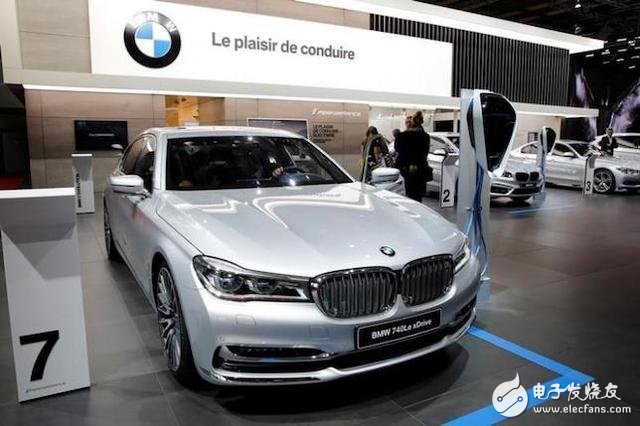According to Reuters, BMW will conduct driverless car testing in Munich, Germany next year, in order to catch up with the development of Uber and other companies in the field of taxis.

BMW executives said on Friday that the company had about 40 unmanned cars in the center of Munich, and the test project would be extended to other cities.
Klaus Buettner, BMW's vice president of driverless driving, said: "Every car has a trained test driver behind the steering wheel."
Uber's rapid development has prompted BMW to consider how to use driverless car technology to accelerate its entry into the pay-per-use commuting market, which is the popular taxi market.
Software and technology companies such as Lyft, Juno, and Uber have shaken the business model of traditional car sales for cars. These companies offer consumers another option to travel by car through a smartphone-based taxi service.
At the moment, traditional car companies are also expanding their own taxi programs and investing in unmanned technology.
Tony Douglas, head of BMW's mobile services strategy, said: "The taxi software still needs to be done manually. If you save the driver, you will have a license to print money."
Douglas said that BMW has made significant progress in the field of car sharing. The company launched the car sharing service ReachNow in Seattle in April this year.
Douglas said: "We attracted 14,000 registrations in four days, and there are many competitors in this field, such as Zipcar, Uber, Lyft and Car2go."
Douglas pointed out that some people pay to cultivate consumer spending habits, while BMW wins through cool products. Douglas said: "We will not be the biggest, but we can be the coolest."
BMW plans not only to leverage its expertise in manufacturing high-end cars, but also to demonstrate its ability to create, own and manage high-end fleets.
BMW CEO Harald Krueger said: “Uber and Lyft are not running their own fleets. Having your own fleet means you can provide services that Lyft cannot provide, such as only for specific groups of people. Car sharing service."
Black modules are ideal for use in roofs, carports and photovoltaic construction (BIPV). The black roof and building façade are fashionable and beautiful, and at the same time have power generation benefits, which are especially loved by distributed users in Japan, the Middle East, and Europe and the United States.
The SUNKET All-Black Series Modules, with its true black and consistent color, can be perfectly integrated with the building (the villa effect is better), and enhance the aesthetic effect of the overall building.
The Solar Cell adopts nano-scale black silicon texturing technology, which reduces the reflectivity of the cell, improves the utilization rate of sunlight, and improves the cell efficiency and module power.
The SUNKET All-Black Series Module also integrates various technologies such as Half-cut and MBB to achieve higher power output and reliability. Using half-cut technology, reducing resistance loss and improving power output; using MBB technology can shorten the current transmission distance, reduce the internal resistance loss of the cell, and bring more power output to customers. At the same time, the half-cut technology can also reduce the hot spot temperature of the module, and the MBB technology has better anti-cracking ability, which can improve the reliability of the module and meet the needs of high safety performance of the roof.
All Black Solar Panels,Pure Black Solar Panels,Best All Black Solar Panels,400 watt q cells Mono All-Black Solar Panel,Top Tier All Black Solar Panel
Wuxi Sunket New Energy Technology Co.,Ltd , https://www.sunketsolar.com